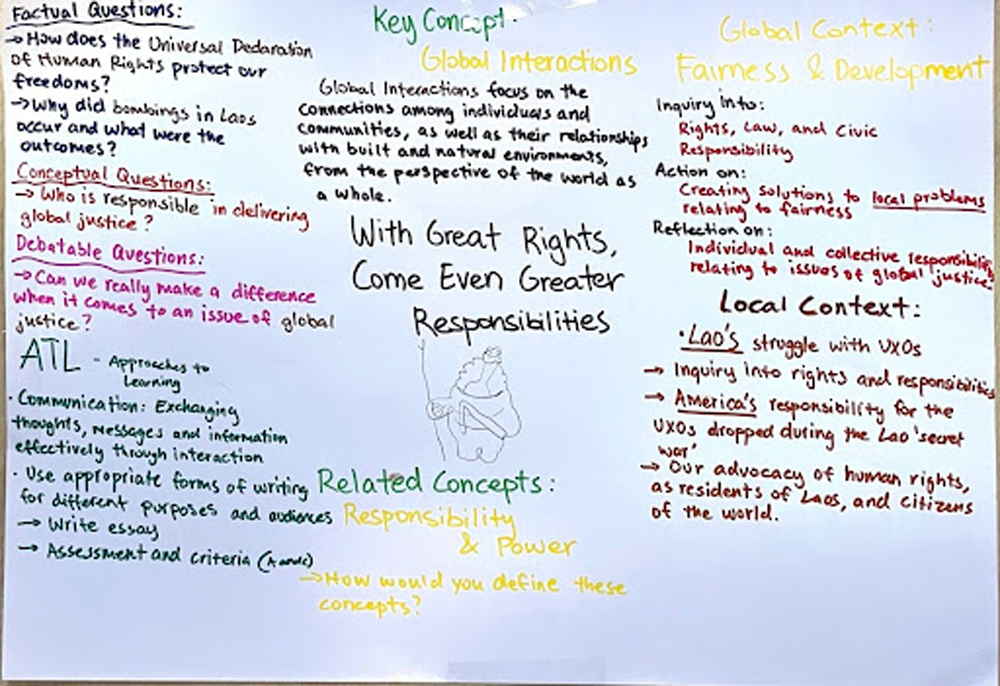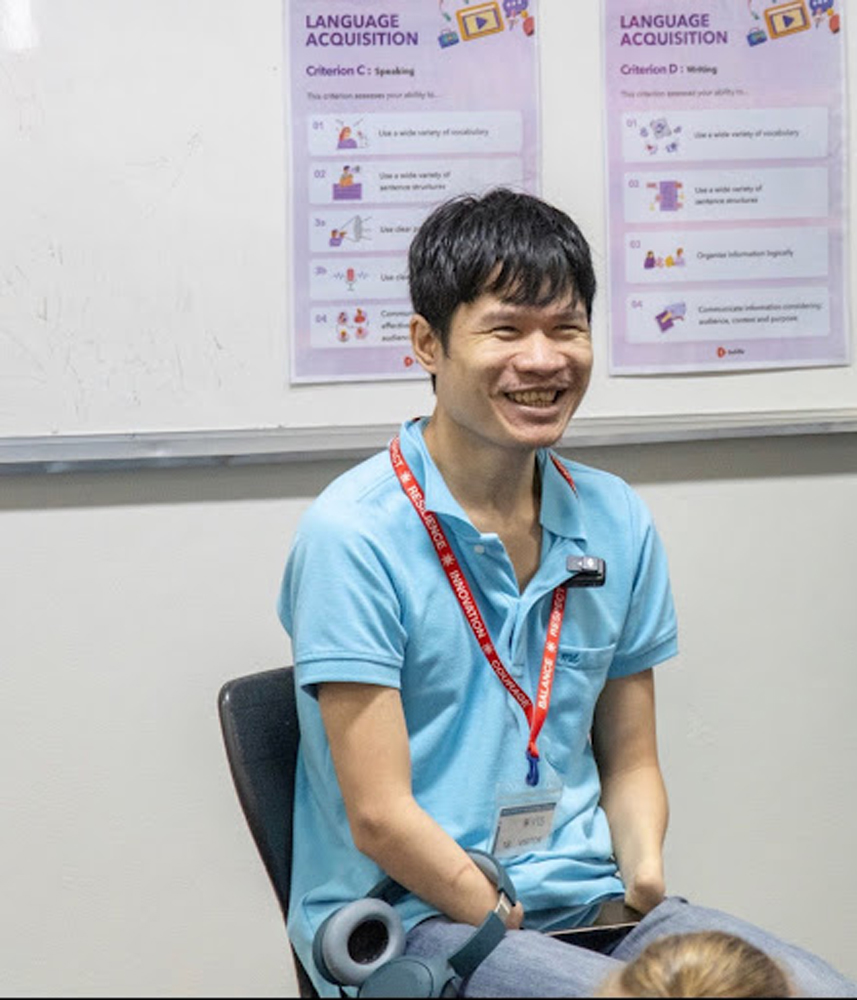
“Where, after all, do universal human rights begin? In small places, close to home – so close and so small that they cannot be seen on any maps of the world. Yet they are the world of the individual person; the neighborhood he lives in; the school or college he attends; the factory, farm, or office where he works. Such are the places where every man, woman, and child seeks equal justice, equal opportunity, equal dignity without discrimination. Unless these rights have meaning there, they have little meaning anywhere. Without concerned citizen action to uphold them close to home, we shall look in vain for progress in the larger world.” - Eleanor Roosevelt (UN Foundation)
Introduction: The Power of Stories
I love this quote from Eleanor Roosevelt because it says that human rights are the “world of the individual person.” Studying human rights is an exercise in looking closely into people’s lived experiences and trying to ensure that everyone’s basic needs and essential dignity are met and honored on a day-to-day basis. We promote human rights and honor the “world of the individual person” by hearing people’s stories, listening closely to them, and offering support and empathy when needed.
Many others have written passionately about the power of sharing stories, such as Lee Ann Lavender, who commented in a recent article for TIE that “through sharing stories, students make deep connections with community members from varied backgrounds and experiences.” Learning about a topic by researching facts, statistics, and information is helpful, but there is often an emotional distance between what we read and what we feel. Storytelling is a way to connect with a topic on a deeper level, and to connect emotionally with the content material.
At Vientiane International School, we have been focusing on sharing stories. One of our Dreams is “Strengthening our Community by Shaping, Sharing, and Celebrating our Stories.” The description for this Dream says, “Every individual’s unique experiences are valued. Each individual’s dignity is upheld. The host country’s culture is honored intentionally, and every story told communicates who we are and what we value” (VIS Dreams). By keeping this Dream at the forefront of our minds throughout the year, we have been able to bring more community perspectives into our curriculum, and deepen our respect for our host country.
Learning about Human Rights and the Secret War:
In my Grade 9 Individuals & Societies class, the students and I learned about an important historical event that took place in Laos during the Vietnam War era. The Secret War in Laos took place from 1964-1973 and resulted in Laos being the most heavily bombed country in history. Over two million tons of explosives were dropped on Laos by the United States of America (USA) during the Secret War, and 80 million of those bombs did not detonate. Currently, only about 1% of the unexploded ordinances (UXOs) have been removed (tourismlaos.org). The UXOs that remain pose a danger to farmers and children living in rural villages, who may accidentally step on them. My Grade 9 students studied the legacy of the Secret War in a unit called “With Great Rights Comes Even Greater Responsibilities.” The key unit concepts were human rights, responsibilities, and global interactions.
As part of this unit, we examined the causes and effects of the Secret War, especially the legacy of UXOs . We studied the Universal Declaration of Human Rights, analyzed the quote from Eleanor Roosevelt, and talked about everyone’s right to live in a safe and peaceful place. We also discussed the importance of countries taking responsibility for their actions and making reparations to those who were harmed and could potentially be harmed by UXOs. For their summative task, students were asked to write a letter to a global leader to educate them about the issue of UXOs in Laos and persuade them to take action.

Taking Learning Further by Sharing Stories:
During this unit, students researched, watched movies, read articles, visited the UXO museum in Luang Prabang, and toured the COPE rehabilitation center in Vientiane (which provides occupational therapy and prosthetics for victims of UXOs). They also heard from representatives of Legacies of War, an advocacy group working to raise awareness about the physical, psychological, and economic effects of UXOs worldwide. But the most memorable learning experiences took place when we heard the stories of two people whose lives were directly impacted by the Secret War: a UXO survivor and a Hmong/Lao American whose family was displaced during the war and had to flee from Laos to a refugee camp in Thailand, ultimately being resettled in the United States of America.
The students and I listened with rapt attention to our guest speakers. The speakers were open, honest, and vulnerable. They shared courageously. Their stories reminded us of the power of words to connect and bind us. The stories that we heard are not mine. But, with permission, I share a few details here to uplift their voices and shed light on their narratives.
Peter Kim is a disability rights activist. He started a nongovernmental organization (NGO) to help people with disabilities in rural Laos. Peter is also a UXO survivor. He lost both of his hands and was blinded at the age of 16 by a UXO explosion. Peter wants people with disabilities to have more hope and opportunity. He told us, “The biggest challenge [people with disabilities face] is confidence. They are not confident to participate, to go to school, to do something in their community. They are shy because of their physical impairments.” Peter leads by example. He has overcome numerous challenges to be successful. His story was a powerful reminder to us about the importance of never giving up.

We also heard from Boon Khang, our school counselor. Boon’s family is Hmong and Lao American and was part of the waves of refugees who were resettled in the United States after the Secret War (for more information, read here). Boon told us that he often thinks about how his family’s trajectory would have been different without the war. He said living in the USA provided his family with new opportunities and experiences they would not have had if they had remained in Laos. It was very difficult for his parents and older siblings to adjust to a new life and culture, as anyone who has ever moved to a new country can attest. However, Boon was just a baby when his family moved to the USA, so he has only known America to be his home. Being back in Laos as a professional allows Boon to reconnect with his family roots.
Students respond to narratives. They are cohesive. They have beginnings, middles, and ends. We struggle to wrap our brains around staggering statistics. The numbers are simply too big. When we hear from someone who was personally affected by an event, though, the numbers become so much more. They become real. We put a name and face to them. We zoom in on the individual. We see things on both the macro and micro levels. Our empathy increases.
The Power of Stories:
The longer you live somewhere, the more you start to learn about it. Stories are a powerful way to increase your understanding of a place, a people, a history. As teachers, we often stress the importance of learning by doing. Perhaps we should also stress the importance of learning by listening. Active learning is important. But so is hearing from elders and experts in the local community. There is something magnetic about sitting down, device-free, in a circle, and listening to someone speak from the heart. Not only does it lead to understanding an issue from multiple perspectives, but it also fosters deep listening and connection (a subject I have co-written about the importance of before).
Next time you are teaching about a topic, think, “Who might be able to help me tell this story? Who are the people in my community that I can reach out to?” Our students spend so much time hearing only their classroom teachers’ voices, maybe it’s time we gave a little floor space to some other folks. For myself, writing this article is my way of sharing a small story with you and perhaps opening your eyes a bit more to the power of storytelling.
Megan Vosk teaches the Middle Years Program English Language Acquisition and Individuals and Societies at Vientiane International School. She is also a member of the Association for Middle-Level Education (AMLE) Board of Trustees.
LinkedIn: Megan Vosk